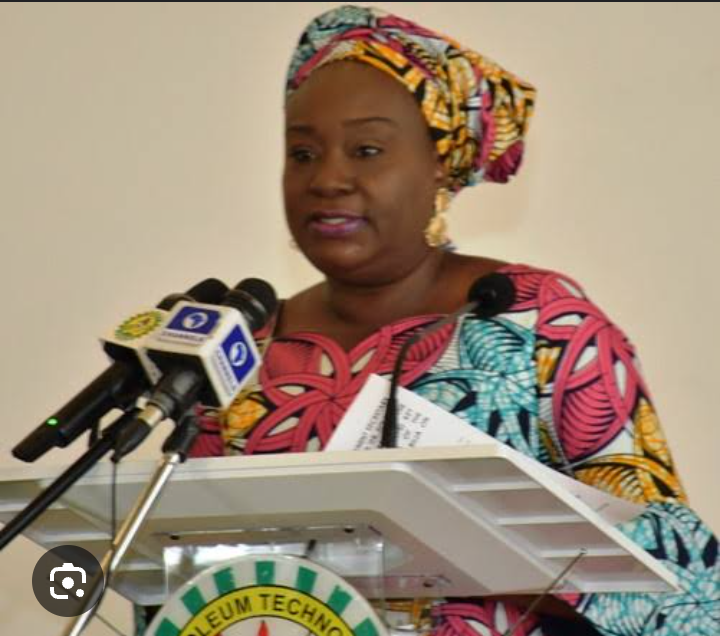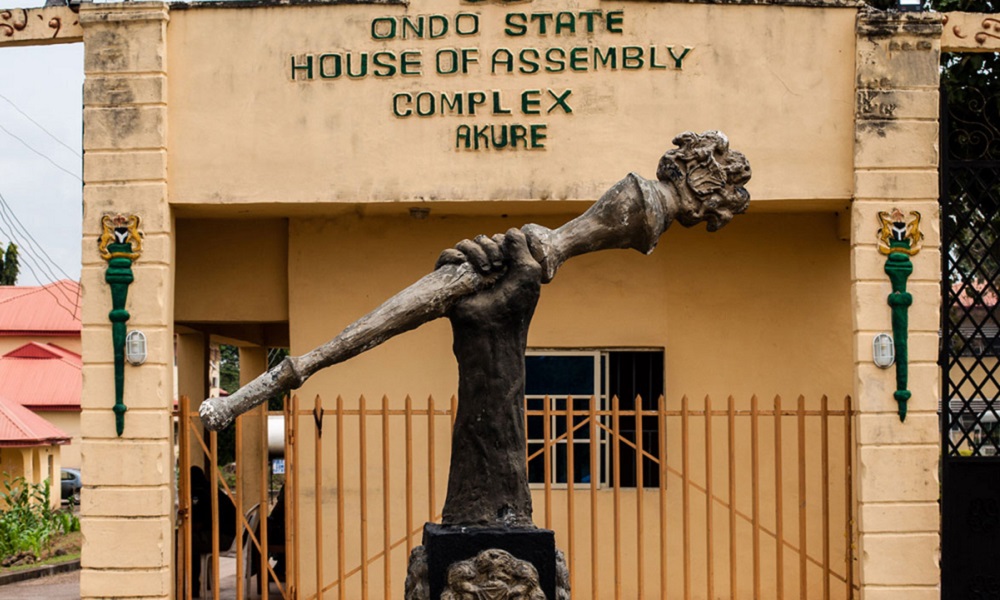News
HND holders must undergo one-year mandatory training- FG insists

By Kayode Sanni-Arewa
The Head of the Civil Service of the Federation, Dr Folasade Yemi-Esan, has asked workers with Higher National Diploma to undergo one-year mandatory training before their conversion from Executive to Officers cadre.
According to a statement on Saturday, Yemi-Esan said this at a virtual interactive session with civil servants in commemoration of the 2024 Civil Service Week with the theme, “Educate an African Fit for the 21st Century: Building Resilient Education Systems for Increased Access to Inclusive, Life-long, Quality and Relevant Learning in Africa.”
The one-year mandatory training programme to bridge the gap between polytechnic awarded Higher National Diplomas and university degrees has been controversial between the National Universities Commission and the National Board for Technical Education.
A bill was passed at the Ninth National Assembly in 2021 to end the dichotomy but was not signed into law by the last administration of President Muhammadu Buhari.
Thus, NBTE, which regulates technical and vocational education, had to introduce what it describes as a one-year top-up programme which offers a platform for HND holders to level up towards obtaining a bachelor’s degree.
While fielding a question from one of the civil servants during the virtual meeting, Yemi-Esan, said, “The curriculum for HND and B.Sc holders were not the same, hence, HND graduates would have to undergo mandatory one-year training before conversion from Executive to Officers’ cadre.”
Adebayo Hassan in Grade Level 14 had earlier asked about the dichotomy between B.Sc and HND holders in the Service and what the Federal Government was doing to bridge the gap.
Speaking on the 2024 Civil Service Week theme, Yemi-Esan emphasised the need for education to be accessible, inclusive and of high quality, while highlighting the need for it to constantly remain relevant to the rapidly evolving demands of the modern world.
According to her, “The theme also speaks to how the Nigerian Civil Service is leveraging learning and development to enhance the capacity and capability of its workforce with a view to delivering on national priorities.”
The Head of the Civil Service disclosed that the rapidly changing work environment as well as demands for greater efficiency have necessitated the adoption of a Performance Management System by the Nigerian Civil Service, adding that PMS Policy and Guidelines have been developed and circulated to all Ministries, extra-ministerial Departments and Agencies.
She pointed out that core teams for its implementation have been duly constituted.
According to her, “PMS implementation has been cascaded to the Ministries, with the Permanent Secretaries serving as the primary drivers.
“In this regard, performance contracts are to be further cascaded down to the last officer in each MDA.
“This new system will assess each officer’s performance solely based on their respective Key Performance Indicators and it will enable tracking of job objectives across all MDAs.
“By implication, each officer across the Service can clearly link his goals and objectives with those of his department, those of the respective Ministry and the national KPIs.
She described the digitalisation of work processes in the Service as another reference point in the ongoing transformation of the Federal Civil Service.
She further stressed that the Office has fully digitalised all personal and policy files and is implementing digital transaction workflow processes, as all official correspondences, in the form of memos and internal and external circulars, are now being processed electronically through the Enterprise Content Management solution.
(Punch)
News
Army acquires 43 drones, wings 46 Turkey-trained personnel

The Federal Government has bolstered the Nigerian Army’s operational capacity with the acquisition of 43 Bayraktar TB2 drones, primarily for deployment in the North-West theatre of operations.
The Commander of the Nigerian Army Space Command, Brig. Gen. U.G. Ogeleka, disclosed this on Tuesday during the winging ceremony of 46 personnel trained in the operation and maintenance of the drones.
The initiative, codenamed Project Guardian, aims to strengthen military operations against insurgency and other security challenges in the region.
“Between May and September 2022, a team of 35 officers and 11 soldiers from the Nigerian Army’s routinely piloted aircraft system regiments underwent specialised training in Turkey on the operation and maintenance of the Bayraktar TB2 drones,” Ogeleka said. “The training crew included multi-piloted aircraft pilots, mission operators, avionics, and mechanical engineers and technicians.”
Out of the 46 trained personnel, 14 are multi-piloted aircraft pilots, seven are mission operators, and 23 are engineers and technicians.
Ogeleka presented 22 of the trained personnel for the winging ceremony, noting that the others are actively engaged in operational duties.
The Chief of Army Staff, Lt. Gen. Olufemi Oluyede, praised the acquisition of the drones and the training of personnel as significant steps toward enhancing the army’s professionalism and combat readiness.
“The winging of these 22 officers and soldiers as pilots and certified maintenance engineers is a morale booster for others in service,” Oluyede said. “It confirms their readiness to operate and maintain the Turkish Bayraktar TB2 drones in our inventory.”
Oluyede further revealed plans to procure additional unmanned aerial systems in the coming year to strengthen military operations across all theatres in the country.
The drones will play a critical role in addressing security challenges in the North-West, a region plagued by banditry and insurgency.
Their advanced surveillance and strike capabilities are expected to significantly enhance the Nigerian Army’s operational effectiveness.
This development underscores the government’s commitment to leveraging technology to improve national security and highlights the Nigerian Army’s drive to modernize its arsenal and build capacity within its ranks.
With more unmanned aerial systems set for acquisition, the military’s ability to conduct precise, real-time surveillance and combat operations is poised for substantial improvement.
News
Ondo Assembly mulls 10-year jail term for land grabbers

The Ondo State House of Assembly is considering a bill that proposes harsh penalties for land grabbers, including up to 10 years imprisonment for forceful entry or illegal takeover of properties.
Governor Lucky Aiyedatiwa has further reinforced the fight against land grabbing by signing an Executive Order to prohibit such activities.
The order aims to end forceful entry, illegal occupation of landed properties, and fraudulent or violent conduct related to land in the state.
To strengthen enforcement, the governor has established a Task Force to protect property rights, uphold the rule of law, and ensure a secure environment for property owners and residents.
The proposed bill also includes severe penalties of up to 21 years imprisonment for selling family land without the consent of the family head or secretary.
Hon Moyinolorun Ogunwumiju, the lawmaker representing Ondo West Constituency 1, who sponsored the bill, spoke during a public hearing on the bill
Hon Ogunwumiju assured stakeholders that the bill would improve land administration, protect landowners, attract investors, and foster peace and development in the state.
He explained that the bill sought to regulate land dealings, protect landowners and buyers, penalise encroachers, and criminalise unregistered agents.
Ogunwumiju said the bill proposed penalties of up to 10 years’ imprisonment for forceful entry or takeover of properties and up to 21 years for selling family land without the consent of the family head or secretary.
Speaker of the Assembly, Hon Olamide Oladiji, urged committee members and stakeholders to ensure the bill served the interests of the people.
He said the bill would maintain order in the state and impose necessary sanctions on offenders.
“Land grabbers pose a significant threat to property acquisition. Their activities ranging from trespassing, forceful occupation, and illegal sales of properties to multiple buyers must be confronted decisively.”
Majority Leader and Chairman of the House Committee on Rules and Business, Oluwole Ogunmolasuyi, said the bill, would benefit the society at large
Ondo Commissioner for Justice and Attorney General, Kayode Ajulo said the bill would enhance land administration and complement the executive order signed by Governor Aiyedatiwa.
Stakeholders including traditional rulers called for full implementation of the bill when signed into law.
News
FG earmarks N250bn for Lagos-Abuja rail project in 2025 budget

The federal government has made an allocation of N250 billion in the 2025 budget for the Lagos–Abuja mass transit rail project.
This budgetary investment is part of a broader plan to revitalize Nigeria’s infrastructure and stimulate economic growth.
The government’s focus on infrastructure development is rooted in the belief that it is a cornerstone of long-term economic planning.
By investing in critical infrastructure such as roads, railways, energy, healthcare, and education, the administration aims to create a conducive environment for both domestic and foreign investment.
The Lagos-Abuja rail project, in particular, is expected to have a transformative impact on the Nigerian economy.
By improving transportation connectivity between two major economic hubs, the project will facilitate the movement of goods and people, reduce logistics costs, and stimulate economic activity.
Additionally, the project is expected to create numerous jobs, both directly and indirectly, contributing to the country’s overall employment rate.
The government’s infrastructure investments are also aimed at addressing regional disparities.
By connecting different parts of the country through improved transportation networks, the administration hopes to stimulate economic growth in underserved regions, reduce poverty, and promote equitable development.
The 2025 budget signals the government’s commitment to transforming Nigeria’s infrastructure landscape.
By investing in critical projects like the Lagos-Abuja rail line, the administration aims to lay the foundation for a more prosperous and connected Nigeria.
However, the success of these initiatives will depend on effective planning, efficient implementation, and transparent governance.
-

 News21 hours ago
News21 hours agoGov Adeleke Speaks On Death Sentence For Chicken Thief
-

 News21 hours ago
News21 hours agoDelta Assembly pardons two suspended members
-

 News17 hours ago
News17 hours agoNetizens Slam Lawmakers As They Sing Tinubu’s Anthem At Budget Presentation
-

 News14 hours ago
News14 hours agoFinally, PDP Flushes Out Suspended National Vice Chairman, Ali Odefa
-

 News11 hours ago
News11 hours agoReps Call for Revival of NAPAC to Boost Transparency, Accountability
-

 News21 hours ago
News21 hours agoJust in: CBN Imposes N100k Bar on PoS, Issues Warning to Operators
-

 News21 hours ago
News21 hours agoHeavy Security Presence at National Assembly as President Tinubu Presents 2025 Budget
-

 News10 hours ago
News10 hours agoReps Recommends Delisting NECO, UI, Labour Ministry, 21 Others From 2025 Budget








